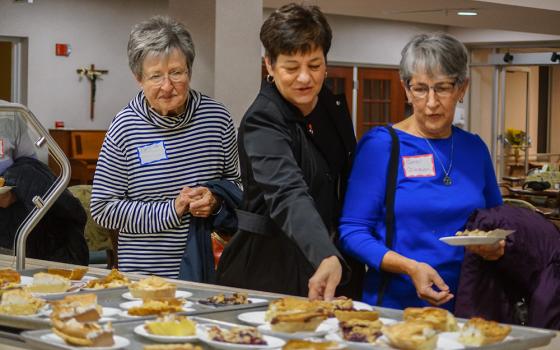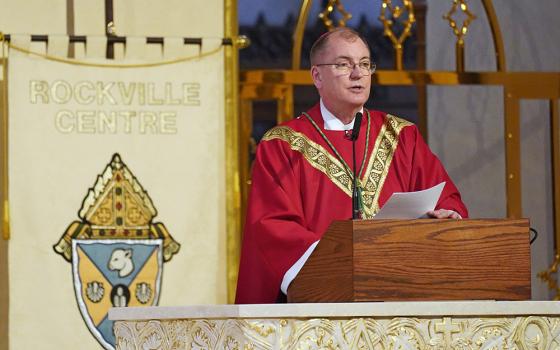The Swiss finance lawyer hired to monitor the legality and transparency of Vatican financial activity said the Italian central bank's concerns about the Vatican's vulnerability to money laundering are not shared by other European countries or international agencies.
Citing a supposed lack of Vatican controls to prevent money laundering, the Bank of Italy denied a request by Deutsche Bank Italia to continue providing credit and debit card services in Vatican City State. Because of the decision, the Vatican Museums, supermarket and other entities have been unable to accept credit- or debit-card payments since Jan. 1.
"I'm truly surprised by the measures taken by the Bank of Italy. No other country in the world has adopted similar measures," said Rene Brulhart, the 40-year-old director of the Vatican's Financial Information Authority.
Moneyval -- the Council of Europe's Committee of Experts on the Evaluation of Anti-Money Laundering Measures and the Financing of Terrorism -- issued its evaluation of the Vatican's financial and banking laws in July and said the Vatican met nine of its 16 "key and core" recommendations to prevent finance-related crimes.
In an interview with the Italian newspaper Corriere della Sera, which was translated and posted on the Vatican Radio website, Brulhart said the Moneyval report judged the Vatican's "process in adjusting to international standards satisfactory and credible. The Holy See was not subjected to any special monitoring measure, neither by Moneyval nor by any other international body."
Yet the Bank of Italy said in a Jan. 10 statement that "although it recognized that progress had been made, Moneyval concluded that the presence of an effective anti-money-laundering regime has still not been proven."
The Italian central bank said it could authorize Italian banks to provide services in countries outside Italy only if the foreign country "has an adequate banking regulatory framework and system of supervisory controls."
Brulhart said not only are there no problems with other European countries, "there's close collaboration."
His office, the Vatican's Financial Information Authority, already has finalized agreements with Belgium and Spain on sharing information regarding suspect financial transactions and has begun similar negotiations with 20 other countries.
In addition, he said, the Vatican has begun the process of entering the Egmont Group, an international network of Financial Information Authorities and has "started close and direct relations with the competent authorities in the United States."
"The reality is that, considering the particular nature of Vatican City State, adequate measures have been adopted for vigilance, prevention and fighting money laundering and financing terrorism," he said.
As the Vatican City court opened formally opened the new year Jan. 12, the assistant prosecutor said its work had increased over the past three years as the Vatican adopted a series of new laws aimed at bringing its legislation up to date with European laws to prevent money laundering, fraud and counterfeiting.
"From being an enclave in Italy, Vatican City is moving progressively toward being an enclave in Europe with inevitable consequences" on Vatican laws, said Pierfrancesco Grossi, the assistant prosecutor.
Vatican City States has about 600 citizens, about 250 of whom reside within the Vatican walls, and about 5,600 employees, but between 18 million and 20 million people -- pilgrims, tourists and visitors -- pass through Vatican City State each year, increasing the work of the police and the court, Grossi said.
In 2011, the court officially recorded 190 marriages -- most involving visitors who came to the Vatican specifically to marry -- 18 deaths and two births. Grossi said the disparity between deaths and births highlights the fact that people usually live in the Vatican while working there, whether they are cardinals, bishops of members of the Swiss Guard and their families.



